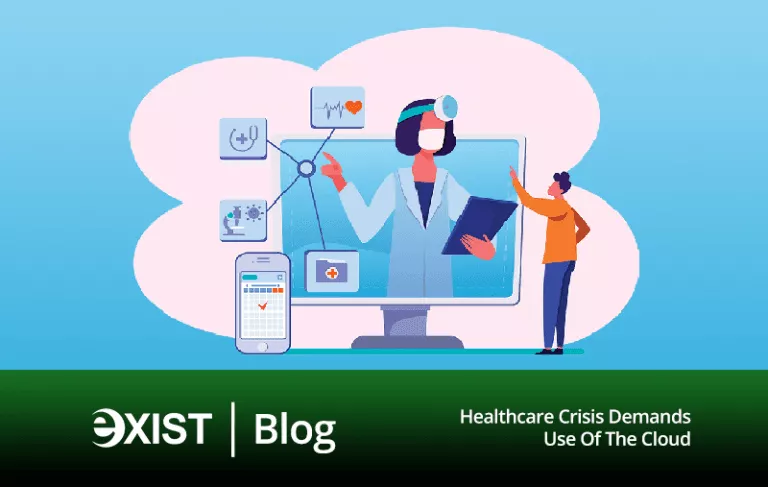The year shocked us with a change we have all not foreseen. For the first time in years, perhaps, decades, we had to turn our backs from the living condition that has grown on us. The world has taken a hiatus from almost all of its activities. The population succumbed to the walls of their homes in fear of acquiring the virus. At the forefront of this global health crisis are fighters equipped with medical weapons and gowns, the first line of defense in this war. While we remain in the comfort of our homes, hospitals keep striving. It has served as heroes’ quarters even in retrospect, saving lives at the best of their guts. But a pandemic can take anyone by surprise. Throughout history, viruses, bacterias, and parasites have been killing more than wars and natural calamities. We have heard of similar diseases like SARS and MERS before. But even with hundreds of health cases related to this, the COVID-19 is a whole new deal. Medical experts are still seeking answers. The world is still yet to discover the cure for it. As the crisis magnifies each day, humanity and empathy for those in the frontline also amplify. Assistance comes in many forms from different people and institutions. As technology innovators, we hope that our technology is serving health workers from our partner hospitals well. Compared to the risks that they are taking, it might be little. But it draws us more to continuously work in advancing our healthcare technologies, knowing that it is serving a great purpose in these troubled times and might even be useful in the future. Having a system that can effectively manage medical records digitally can save some of their time. It also contributes to reducing errors that could affect patient outcomes. There might still be millions of unknown diseases comparable to COVID-19 that the world may encounter again. Thus, an effective documenting system to gather information about the patients can help in medical research, developing vaccines, and improving medical practices. This phenomenon hit us with the reality that a multitude of possibilities is still unknown in the field of medicine. Takeaways from this event will likely propel a much intensive organizational development and the adoption of modern solutions for modern problems. We hope that once the brighter days are upon us once again, we will have more chances to work hand in hand with those in the health sector, improving their operations while enhancing our healthcare products. So that when another biological threat comes in our way, our medical practitioners are better geared, having better access to medical knowledge. We can be more ready than afraid. Check out our healthcare product, MEDCURIAL, and see how it helped some of the biggest hospitals in the country provide better patient outcomes.
The pandemic has placed institutions around the world under a heavy burden. Except for national governments, no other institution or organization has taken the full force of the effect of the COVID virus than the healthcare industry. The immensity of the response needed, saving lives in addition to those that are infected while protecting their own care teams is unprecedented possibly since the post World War. But we are, by no means still in the industrial age. Technology has advanced to the point that people can stay in touch with families and workmates while physically apart across continents. What this also means is that systems can be serviced and operated remotely while interfacing with other systems in order to provide valuable data and/or service that workers need to perform their jobs. At its core, most if not all businesses, institutions including hospitals, require software systems in order to run their operations and coordinate the disparate but dependent functional parts. We have at our disposal the use of magnificent machines that we’d never thought would be smart enough to turn on and off and operate by themselves. Inside the modern hospital, we’re used to seeing nurses carry tablets instead of paper charts, programmable infusion pumps instead of IV drips, and patients viewing lab results from the mobile phone instead of reading them on paper. Yet all this may not be enough and the situation right now and post-crisis demand that healthcare upgrade and become more digital. It has been said that the web is the future and along with it, is the use of cloud computing. But this isn’t true at all because the future is upon us already! The window for getting by with anything manual or use of outdated software applications that require complicated installations and effort-intensive management has just about closed. The current crisis just illustrated how fragile are the systems that are highly dependent on onsite physical support. Unless, you’re a care provider – a doctor or nurse or medical team member, any function that can be performed remotely can mean lives being saved and less burden on medical services. To believe that this is temporary and that things will return to normal soon is to remain in denial. The world has changed and expectedly, so will the tools. One can bet that this crisis will spur innovation that will bring about better technology for hospitals, businesses and other industries than what we have right now. The kind that allows people to focus and invest on work that is truly valuable like bedside care and directly saving lives. But until that time comes, it is best to perform an honest audit of what keeps your business up and running. Heaven forbid that IT systems experience downtime and can’t help hospitals stay afloat. Because every medical personnel’s fervent wish is for people to stay home, expecting the hospital systems and processes running efficiently (from admissions, discharge, orders, billing and cashiering among others) while they do their jobs is probably high on their wish list, too.
- 1
- 2


